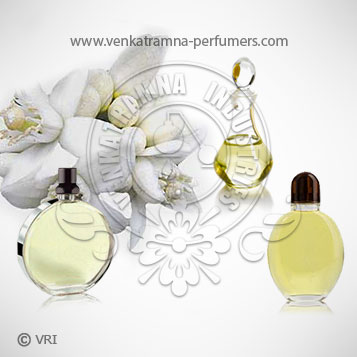
| Botanical Name | Citrus aurantium |
| Common Name | amara |
| Country of Origin | Egypt, Italy, Tunisia, Morocco, Egypt, USA, France |
| Solubility | Insoluble in water, soluble in alcohol and oils |
| Specific Gravity | 0.88 |
| Optical Rotation | 9.15 |
| Refrective Index | 14715 @ 72°F |
| PlantPart | Flowers |
| Bland With | Benzoin, jasmine, geranium, lavender, all citrus oils, rosemary, sandalwood, ylang-ylang. |
| CAS No | 8016-38-4 |
| Flash Point | 75°C |
| Extraction Method | Steam Distilled |
Neroli Essential Oil is extracted from small, white, waxy flowers of Citrus aurantium var. amara (also known as Citrus vulgaris and C. Bigardia) of Rutaceae family. Extracted through steam distillation process (yields 0.8 - 1 %), the essential oil is one of the most popular for great therapeutic properties having great relaxing effect on body and mind. It also helps in relieving muscle spasms, calming heart palpitations as well as has rejuvenating & regenerative effect on skin, helping it prevent ugly scarring & fighting stretch marks.
Though Bitter Orange Essential Oil has been around for centuries, Neroli Essential Oil wasn’t discovered until the seventeenth century. It was named after Anna Maria de la Tremoille, princess of Nerola. The oils properties were extremely valued by the people of Venice who used it against plague and fevers. It is a valuable medicinal herb, the orange originated in China and by the middle Ages was a favorite with Arabian physicians. In the 16th century, an Italian princess named Anna-Marie de Nerola reputedly discovered oil extracted from the flowers, which she used to scent her gloves; today neroli oil, as it became known, It is prohibitively expensive. The Chinese remain the greatest enthusiasts of medicinal oranges: the bitter Seville orange (C. aurantium) and sweeter tangerines and satsumas (Citrus reticulata) that are mainly used
Color : Coffee brown to orange @22C with Floral odor,
Aroma : Sweet, floral citrus aroma
a-pinene, b-pinene, camphene, a-terpinene, neryl acetate, nerol, farnesol, linalool, geraniol, nerolidol, linalyl acetate, indole, methyl anthranilate, d-limonene, camphene
Neroli oil is very relaxing & helps in providing relief from chronic anxiety, depression, fear, shock & stress. It also has a calming effect and can be beneficial to digestive tract. It can also be used for intestinal spasms, colitis & diarrhea. It helps insomnia, and as it has sedative effects, it is also useful for treating depression, anxiety & shock as well as calming heart palpitations, treating headaches, neuralgia & vertigo. C. aurantium is also used for the treatment of several ailments such as anxiety, lung and prostate cancers, and gastrointestinal disorders and obesity. Due to the prohibition of Ephedra sinica Stapf. in Farw.-containing weight loss products in the market, C. aurantium has found an important place as a preferable agent to replace ephedra, as it contains p-synephrine, a phenylethanolamine type alkaloid, which is chemically similar to adrenergic agents, as appetite suppressants. C. aurantium possesses multiple therapeutic potentials. These biological credentials include anticancer, antianxiety, antiobesity, antibacterial, antioxidant, pesticidal, and antidiabetic activities. The essential oil of C. aurantium was reported to display marked pharmacological effects and great variation in chemical composition depending on growing locations but mostly contained limonene, linalool, and β-myrcene. Phytochemically, C. aurantium is rich in p-synephrine, an alkaloid, and many health-giving secondary metabolites such as flavonoids.